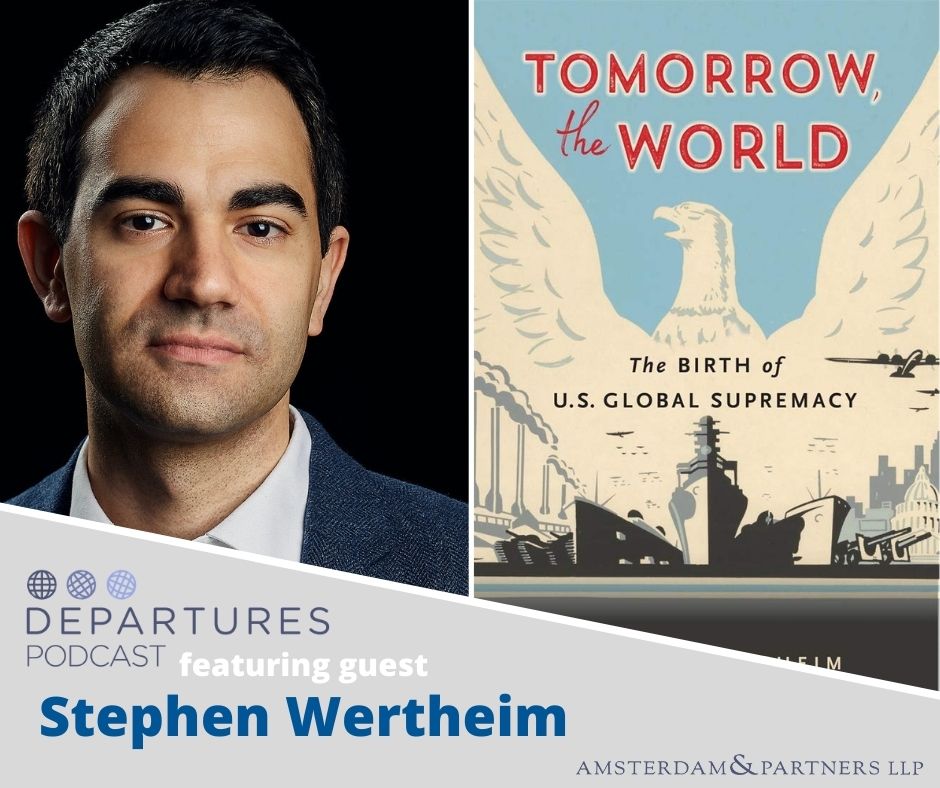Departures Podcast with Stephen Wertheim

The United States is a country that spent most of its history avoiding interventions, avoiding entanglement in great power politics, content to be isolated looking after their own affairs. Then suddenly, in just the past 75 years, it has become the world’s preeminent armed power in a position of global leadership. How did such a dramatic remaking of America’s role take place so quickly?
Historian Stephen Wertheim explores this question and more in his fascinating new book, “Tomorrow, the World: The Birth of U.S. Global Supremacy,” examining the months leading up to Washington’s decision to enter the conflict and the impact this decision had on reshaping the nature of the international system leading up to today.
“For most of America’s history, the United States did not seek and did not tell itself it was seeking military dominance across the globe,” Wertheim says. “Having military dominance, stationing bases around the world, being responsible in principle for enforcing world order – that was not what the United States was doing from its founding to 1940. And so a choice had to be made to put the United States on a fundamentally different path. And it was made, I argue, in the 18 months between the fall of France in the middle of 1940 and the bombing of Pearl Harbor at the end of 1941.”
Wertheim continues by breaking down the misapprehension regarding the tug of war between “isolationists” vs. “internationalists,” which didn’t actually take place, and instead obscures this sea change in the desire for US global leadership. Instead, American leadership was carefully weighing whether it would be possible to preserve a limited Western hemisphere trade bloc while giving up the rest of the world to the Axis powers, and then eventually expanding these areas wider and wider that they considered should be defending for US interests.











